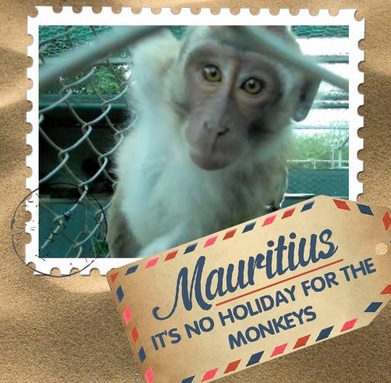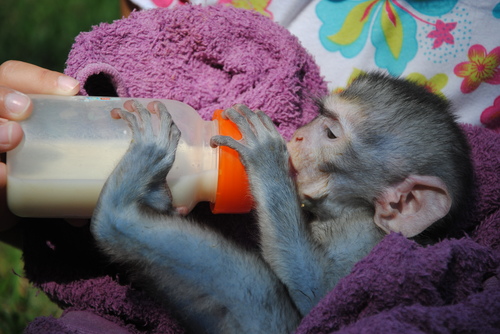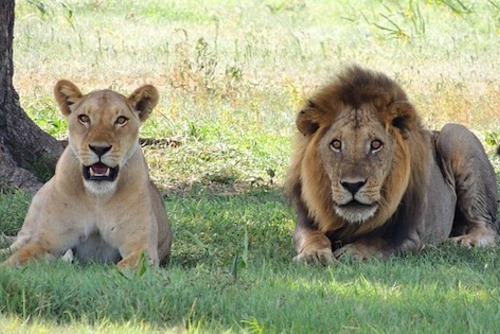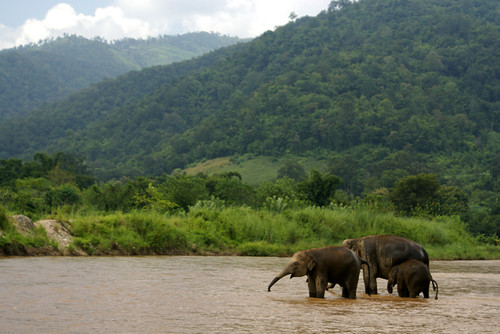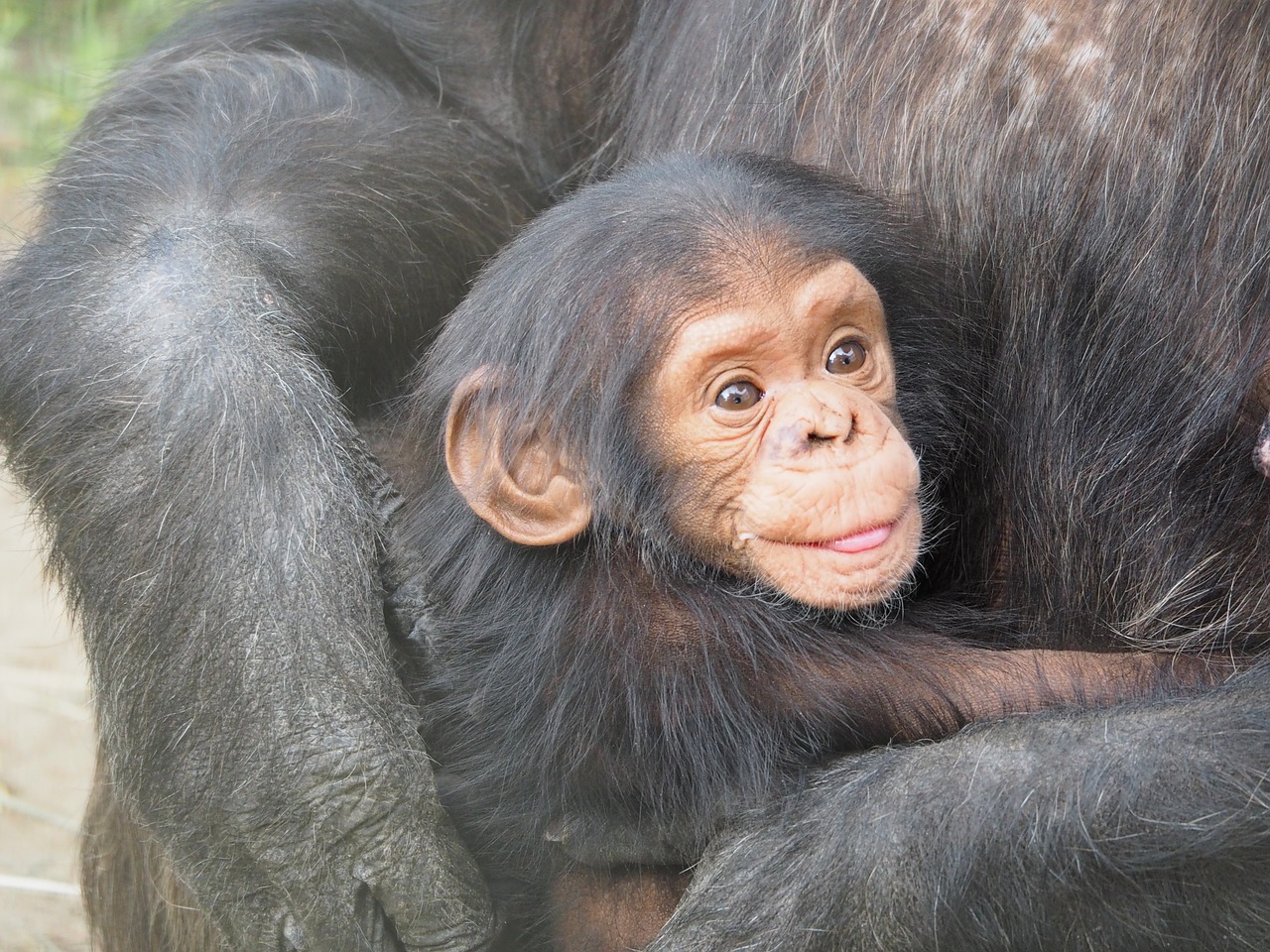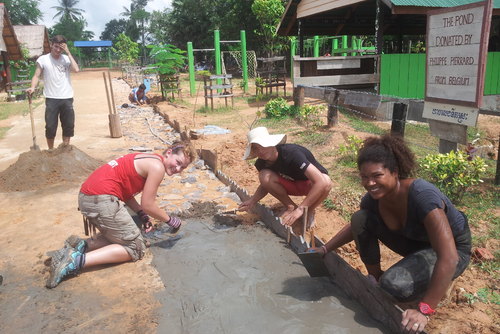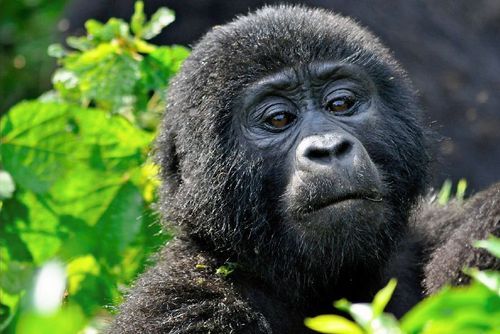Meeting these ethical standards can be difficult as it can be very easy – the more you look – to scratch the surface and find links to ethically dubious practices or products.
That is why it is important that travellers do not simply view a boycott, or veto of a certain location, company, or airline as the key action to take, but instead use their influence as a consumer and tourist to bring about change by pro-actively voicing their concerns. .
The BUAV has launched a tourism awareness campaign appealing to holiday-makers to register their concerns for the plight of the monkeys in Mauritius.
Unbeknownst to the thousands of holidaymakers and honeymooners who visit the picture-perfect island each year, there are large breeding farms hidden away in the lush landscape and contain tens of thousands of monkeys who are doomed to be shipped to laboratories across the globe to be used in experiments.
These wild animals have been torn from their jungle homes and imprisoned behind bars on concrete within large farms where they are bred to produce offspring to be exported for research.
Mauritius is one of the world’s largest suppliers of monkeys for research. Latest figures from January to March 2014 show Mauritius exported 2,095 of its long-tailed macaques to laboratories around the world, including in the USA, UK, Canada, Spain, France, Germany, and Mexico.
Upon arriving at their destination many monkeys are used in toxicological (poisoning) research. Such testing can last for months during which the animals are dosed with chemicals or drugs through injection or forced ingestion. Others are used in neurological research which involves the implantation of electrodes and/or brain damage.
The long-tailed macaque is a curious and clever animal and has strong family relationships, living in groups that can reach over 30. If healthy, in the wild these fascinating monkeys can live up to 30 years old, spending a lot of time with family and social groups, grooming, foraging and playing. They are excellent swimmers and sleep in trees alongside rivers.
The BUAV is campaigning to end this suffering. We believe these wild monkeys deserve to live out their lives in the freedom of the forest. There is much that tourists can do to support the BUAV campaign.
How to Help
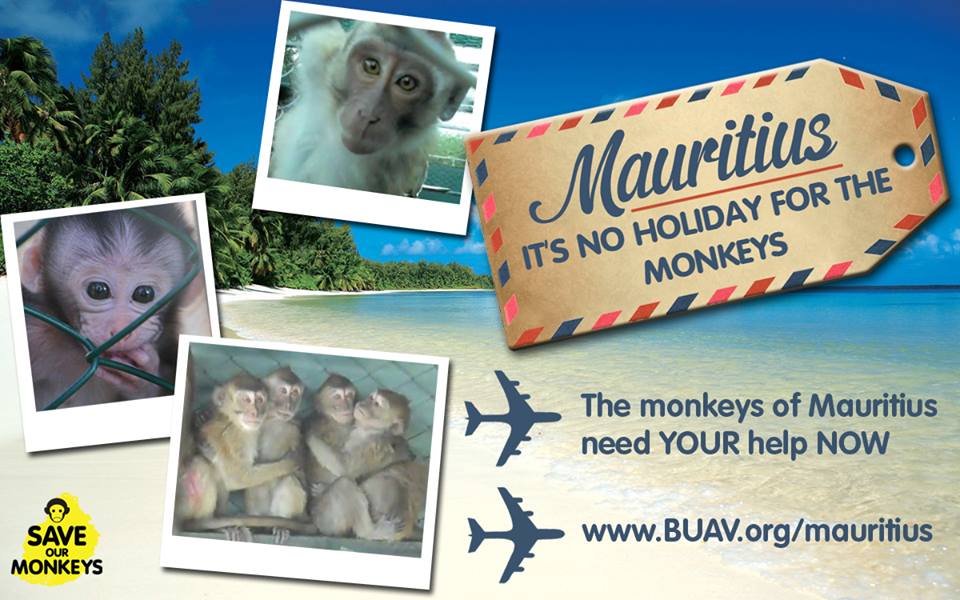
The BUAV has been investigating and campaigning against the international trade in primates for research for over 20 years. Follow the campaign on Facebook.com/SaveOurMonkeys and Twitter @SaveOurMonkeys for latest updates.
You can also:
- Search volunteer programs abroad
- View our volunteering programs in Mauritius
- Apply to volunteer with animals abroad
- Check out inspiring volunteer programs with monkeys

